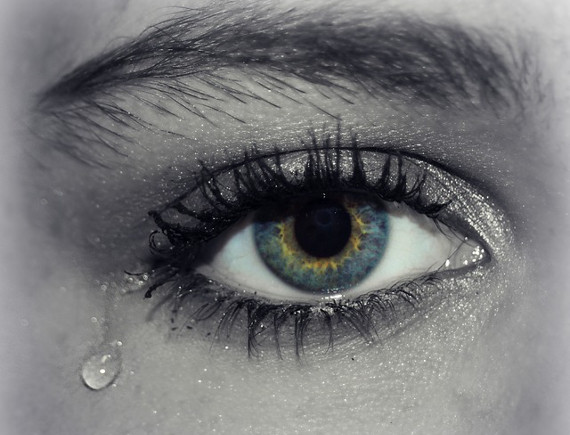Crying is a different experience for everyone. Some people are really emotional and they can cry at the smallest things, while others are cold as a stone and don’t cry even in the most saddest situations. But a person doesn’t have to be sad to cry – people cry from joy in the happiest moments of their life.
Have you ever wondered why do you cry, why some people say that crying is beneficial or who cries more – men or women? Here are the answers to these interesting questions:

Why do we cry? – The story behind crying
Crying is the first form of communication. During the first months of life, babies don’t cry emotional tears. They cry because it’s the only way to show that they are helpless and they need care from someone.
Crying is an expression of strong emotion. Through tears, people express their strongest emotions, whether they are good or bad. Crying may be caused by grief, pain, anger, but also from happiness or excitement.
Crying is a way to get something. Some people cry to attract attention. Others cry to achieve what they want. Research showed that women who cry during an argument with their partner, are more likely to resolve the conflict in their benefit. On the other hand, in arguments where the woman doesn’t cry, the conflict often escalates.
Cry deepens the bond between people. People need to get support from others. One research shows that when women watch a video of another woman crying, they begin to feel emotional closeness with that woman.
The chemistry behind tears
Your eyes can produce different kind of tears. There are the three types of tears:
- Permanent or basal tears: They are created to keep your eyes moist. With every blink, your eyelids have small amount of tears that ‘wash up’ your eyes.
- Reflex tears: These are tears created in response to irritation or the presence of foreign body in your eye.
- Emotional tears: They are produced as a result of different emotions – sadness, pain, happiness, anger, frustration and so on.
Scientists have analyzed the composition of different kinds of tears and have made the conclusion that emotional tears have a different composition than tears caused by eye irritation or tears that moisturize the eye. Emotional tears contain enzymes and proteins not found in other types of tears.
There is a theory that crying is a way for your body to release the toxins that are produced by stress hormones, so it’s considered beneficial.
Who cries more – men or women?
On this question many people will rely that women cry more than men. And that’s somewhat right.
Until they start to go to school, boys and girls cry the same. But as time passes by, boys begin to cry less. It’s still unclear whether it is caused by the pressure from society that says that boys need to hide their tears or because of puberty and hormones that make girls more emotional. Or maybe both.
Women cry on average 64 times a year, while men cry about 17 times per year. If you ask a man when was the last time he cried in front of someone, he’ll probably need a long time to remember.
Here’s an interesting fact: As women get older, they begin to cry less, while men start to cry more often. Again, for this change we should blame the hormones. Over time, in women, the female hormone levels drop, and the concentration of the male hormone testosterone increases. Therefore, they often get angry, but they rarely cry.
On the opposite, as time passes by, the testosterone levels in men usually drop, so they rarely get angry, but they cry often.
Why crying is good for you
Once they have shown their emotions by crying, most people feel more relaxed. Almost 90% of ‘criers’ feel better and happier after they let their tears run down.
After crying the breathing and the heart rate decreases, sweating decreases also and there is a period of relaxation that lasts longer than the crying. Therefore, some people feel really relaxed after crying.
Studies have shown that people who cry as a result of stress, pain or other strong emotions, are generally healthier then those who don’t cry.
It’s generally known that the retention of emotions leads to increased levels of stress, which may contribute to the occurrence of headache, depression, heart disease and many other diseases. You could say that crying is one way of the body to fight stress.
So next time you feel like tears are coming in your eyes, do not be afraid to let them run down.



